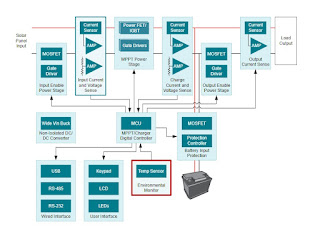European semiconductors choose a way to advance. Lansheng Technology: this is the result of market choices.
2022 is a very difficult year for the semiconductor industry. The consumer electronics chip market continues to slump, and the memory chip market is close to freezing point. Many semiconductor companies have been affected to varying degrees. Until now, this situation has not changed significantly, and the bottoming out has not yet come. However, there are exceptions. STMicroelectronics, Infineon, and NXP, as the three giants in the European semiconductor field, will stand alone because they have seized the fastest growing and most stable market demand in the automotive and industrial fields in 2022. Under such a turbulent market environment, the three companies were minimally affected and achieved relatively good growth.
Leading the automotive chip market
The hottest semiconductor market right now is the automotive market. In recent years, the automobile industry has developed rapidly, and the pace of "new four modernizations" (electrification, networking, intelligence, and sharing) is getting faster and faster. In particular, the speed of introducing new electric vehicles has exceeded previous expectations. By 2020, the degree of electrification in cars will reach at least 60%, and more and more chips will be required in cars. The cost of semiconductor devices in a conventional car is about $500. However, the cost of semiconductor devices in a software-defined electric vehicle is estimated to be 1500-2000 US dollars, which is 3-4 times that of a traditional car.
Therefore, more and more chip manufacturers have begun to transform to automotive chips. However, the safety, stability, and matching with cars required by automotive-grade chips require a long time for research and development, testing, and on-board experiments. Moreover, whether it is changing from the original production line to the production line of automotive-grade chips, or building a new production line, it will take time and funds, which makes many companies feel hopeless about the auto market.
And this allowed the European Big Three, which had been deeply involved in automotive chips, to win at the starting line. With complete technology, mature products, sufficient production capacity, and a solid customer circle that has already been established, the three giants have achieved first place in their respective segments. In the list of the top ten manufacturers in the automotive semiconductor business in 2021 released by Semiconductor Intelligence, Infineon ranks first, NXP ranks second, and STMicroelectronics ranks fifth; in the field of power semiconductors, Omdia announced the top ten power semiconductor markets in 2021 In the sales ranking of major manufacturers, Infineon ranks first and STMicroelectronics ranks third; in the SiC market, STMicroelectronics ranks first and Infineon ranks second; in the MCU field, according to the 2021 IC Insights released In the ranking of the world's top ten MCU manufacturers, NXP, STMicroelectronics, and Infineon rank in the top five, and the three giants together account for 47.3% of the market share. This also makes the status of the Big Three in the field of automotive chips extremely stable.
STMicroelectronics President and CEO Jean-Marc Chery said: "STMicroelectronics' full-year 2022 revenue increased by 26.4% to $16.13 billion, which was attributed to strong demand in the automotive and industrial markets. The operating profit margin increased from 19.0% last year. % increased to 27.5%, and net profit doubled to US$3.96 billion. The annual revenue target for 2023 is US$16.8 billion to US$17.8 billion.”
It is understood that the Automotive and Discrete Products Group (ADG) will contribute more than 30% of STMicroelectronics' total revenue in 2022. The automotive business is at the heart of ST's $20 billion revenue goal.
Jean-Marc Chery said that STMicroelectronics has reached cooperation with 20 car companies, and has more than 100 ongoing cooperation projects with industrial customers and automotive customers. SiC vehicle enterprise customers include BYD, Geely, Great Wall, Hyundai, Xiaopeng, etc. Tier 1 supplier customers include Delta, Huawei, Inovance, Xinrui Technology, Sungrow, Vmax New Energy, etc. Asian customers account for about 30 percent of STMicroelectronics' silicon carbide revenue. It is expected to achieve the goal of silicon carbide revenue of US$1 billion in 2023.
Infineon's previously released financial report for the first quarter of fiscal year 2023 showed that it achieved revenue of 3.951 billion euros and net profit of 1.107 billion euros in the quarter, a quarter-on-quarter increase of 4.6%. Infineon said that low-carbonization and digitalization will drive strong growth in structural demand for semiconductors, thereby driving sustainable business growth for Infineon. Therefore, Infineon has raised its long-term financial target. It is expected that the revenue in the second quarter of fiscal year 2023 will be 3.9 billion euros, and the total revenue in fiscal year 2023 will reach about 15.5 billion euros, with a growth rate of about 10%.
Jochen Hanebeck, CEO of Infineon, said: "Even in a weak macroeconomic environment, most of Infineon's businesses performed strongly. In particular, the energy transition and the expansion of electromobility have enabled us to expand our presence in industrial and automotive applications." The demand for solutions continues to rise.”
NXP’s financial report for the fourth quarter of 2022 showed that revenue was US$3.312 billion, a year-on-year increase of 9%, exceeding market expectations; net profit was US$734 million, a year-on-year increase of 20%. Among them, the revenue of automotive chips increased by 17% year-on-year to US$1.805 billion, accounting for 54.5% of the revenue. NXP's 2022 full-year revenue will be US$13.21 billion, a year-on-year increase of 19.4%; net profit will be US$2.833 billion, a year-on-year increase of 48.6%. NXP President and CEO Kurt Sievers said that NXP has a fruitful year in 2022, with revenue reaching new highs and the automotive business performing well.
The CEO of Lansheng Technology said that the continuous growth of electric vehicle sales has accelerated the growth of demand for in-vehicle products, and the improvement of global production levels and the continuous popularization of electric vehicles will promote the continuous growth of demand for semiconductor products. European semiconductors will only increase.



Comments
Post a Comment